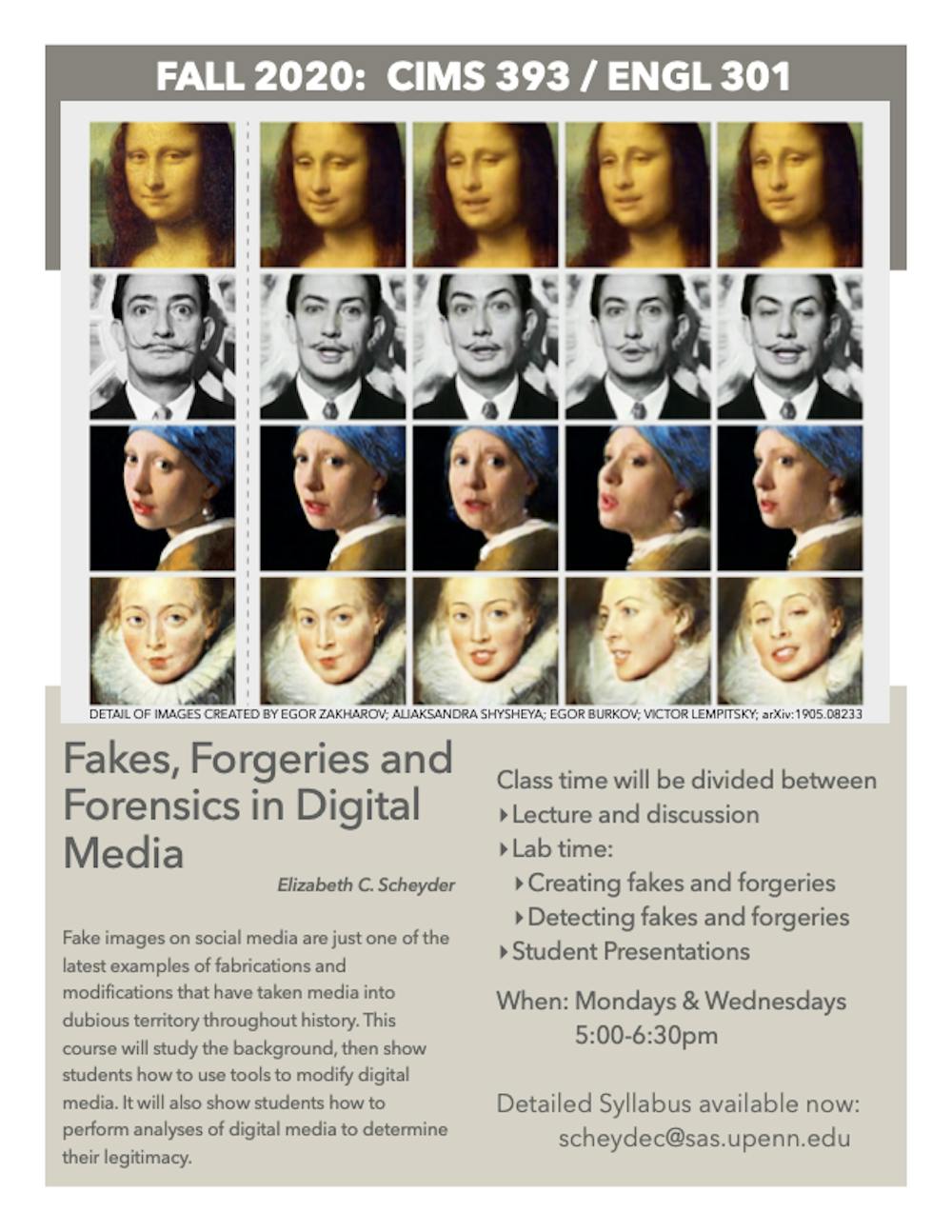Credit: Sukhmani Kaur
The English and Cinema Studies departments are providing a new course this fall that will permit students to study the history of fakes and forgeries in visible mediums like pictures, in addition to learn how to use picture manipulation instruments.
The seminar, titled “Fakes, Forgeries, and Forensics in Digital Media,” will be taught by professor Elizabeth Scheyder, who believes it is very important study the forgeries of the previous and current as a result of of their potential to control public opinion. While forgery has been addressed in comparable programs, Scheyder mentioned she needs to take a distinctive method along with her seminar.
“The traditional academic part of the course won’t be just dry lectures,” she said. “I’m not that kind of teacher.”
Students will learn and study the history of forgery and focus on historic and up to date debates about whether or not the creations of fakes devalue the authentic, and if they’ve any worth in themselves. Class time will be divided amongst lecture, dialogue, lab time — creating and detecting fakes and forgeries — and scholar shows, in line with the course syllabus.
Scheyder mentioned the class will comprise palms-on work together with utilizing Photoshop and GNU Image Manipulation Program to digitally manipulate images. A midterm mission will require students to create their very own digital media — a pretend or forgery — and current it to the class, explaining how they produced the pretend.
Course subjects will embody faked antiquities, digital fakery, particular results, and learn how to detect modifications, Scheyder mentioned. While students will study varieties of forgery corresponding to antiquities and paperwork, Scheyder mentioned images will be the essential focus of the course.

(Photo from Elizabeth C Scheyder)
The class will additionally incorporate more moderen examples of digital forgery, corresponding to the deepfake phenomenon, Scheyder mentioned. Deepfakes are manipulated movies created by synthetic intelligence that produce pretend photographs and sounds that seem like actual, in line with CNBC.
Scheyder mentioned she needs to keep away from extremely politicized examples of digital forgery to keep away from distracting her class, including that students will discover non-political forgeries to be simply as efficient at manipulating public opinion.
These examples embody how digitally modifying fashions’ photographs can form public opinion about magnificence narratives, in addition to how adjustments in cinema can lead folks to query the distinction between particular results and pretend media, she mentioned.
“I can see this course being relevant to people who are interested in public affairs. Communication and public opinion can be swayed by fake media,” Scheyder mentioned. “I’m going to try and keep politics out of it.”
College junior Delia Chen, who took a writing seminar titled “What Drives Engineering” with Scheyder, mentioned the professor was organized and interacted along with her students usually, giving them correct suggestions and educational recommendation.
“I decided to stick with the course because I found the professor to be so warm, nice, and extremely engaging,” Chen mentioned.
Scheyder serves as an Instructional Technology Project Leader in the School of Arts and Sciences, and is a lecturer in the College of Liberal and Professional Studies. From Penn, she holds a bachelor’s diploma in Systems Engineering, a grasp’s diploma in Teaching English to Speakers of Other Languages, and a Doctor of Philosophy diploma in Educational Linguistics.
Sign up for our publication
Get our publication, Dear Penn, delivered to your inbox each weekday morning.
With new developments being made in the subject of forgery on a yearly foundation, Scheyder mentioned she is optimistic the course will have limitless dialogue materials. She added the class wants excessive enrollment to justify persevering with the course previous fall 2020.
Scheyder emphasised how the study of forgery, like all fields of study, is continually evolving.
“The technology is moving so fast. I could see teaching this every year and having new examples.”
” +
“
” + tales[story][‘ogTitle’] + “
” +
“









